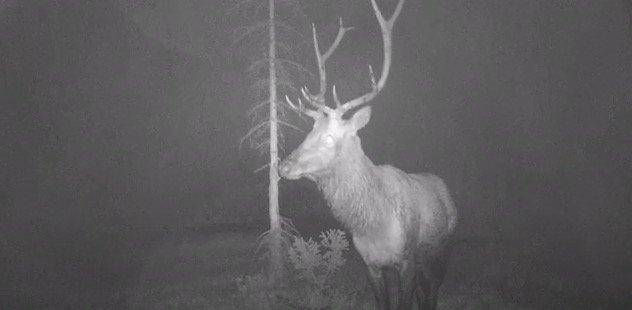DWR News Release
After voting in January to restrict the use of all trail cameras in the harvest or attempted harvest of big game for several months of the year, the Utah Wildlife Board voted to keep the same trail camera regulations during an administrative rule appeal hearing on Thursday.
Background on trail camera regulation
A trail camera is defined as a device that is not held or manually operated by a person and is used to capture images, video or location data of wildlife and uses heat or motion to trigger the device. The Utah Legislature passed HB 295 during the 2021 legislative session, and it went into effect May 5, 2021. This new law instructed the Utah Wildlife Board to make some rules governing the use of trail cameras in hunting.
As a result, the Utah Division of Wildlife Resources conducted two separate surveys, which went out to more than 16,000 big game hunters and requested their feedback on potential proposals for the wildlife board. The survey results showed that the majority of the public opposed using transmitting trail cameras for hunting (cameras that transmit images and footage in real time).
During public meetings in November and December, the Utah Division of Wildlife Resources proposed to restrict the use of transmitting trail cameras. During the Jan. 4 board meeting, the Utah Wildlife Board voted to prohibit the use of all trail cameras (including all non-handheld transmitting and non-transmitting devices) in the harvest or to aid in the harvest of big game between July 31 and Dec. 31.
Due to considerable feedback on the rule change, the Utah Wildlife Board was required by state statute to hold an administrative rule appeal hearing — different from a normal wildlife board meeting — on Thursday to hear additional public comments on the issue. After several hours of comments and discussion, the board voted to keep the current seasonal restrictions for trail camera use.
Details of trail camera regulation rule
The rule prohibits using any trail camera (or non-held device) in the harvest of big game — or to aid in the harvest of big game — between July 31 and Dec. 31 on public or private property. The rule also prohibits the sale or purchase of trail camera footage or data that could be used to take, attempt to take, or aid in the take or attempted take of big game animals. That includes images or video, location information, time and date of the footage and any other data that could aid in the harvest or attempted take of big game.
The seasonal restrictions on trail camera use do not apply to:
-
Private landowners who are monitoring their property for trespass
-
Private landowners monitoring active agricultural operations
-
Agricultural producers harvesting bear or cougar that have killed livestock
-
Cities involved in the Urban Deer Program
-
Government or educational organizations gathering wildlife information
-
Anyone who is not hunting and is just getting footage of wildlife for personal use
However, trail cameras on private property cannot be used to help in the harvest of big game between July 31 and Dec 31.
The board also voted to keep the same restrictions on the use of night-vision devices to locate or attempt to locate a big game animal. The rule prohibits the use of any night-vision device to locate or attempt to locate a big game animal from 48 hours before any big game hunt in the area through 48 hours after any big game hunt ends in the area. A night-vision device is defined as anything that enhances visible and non-visible light and includes the use of night-vision devices, thermal-imaging devices, infrared-imaged devices and other electronic devices that enhance the visible and non-visible light spectrum.
For frequently asked questions about the trail camera season rule, visit the DWR website. The webpage will be updated soon with additional details.
Visit the Utah Department of Natural Resources YouTube Channel to watch Thursday’s meeting.

